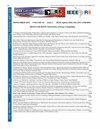DeepRetinaNet: An Automated AI-Based Framework for Retinal Disease Diagnosis
IF 1.3
4区 工程技术
Q3 COMPUTER SCIENCE, INFORMATION SYSTEMS
引用次数: 0
Abstract
Automated retinal disease diagnosis leveraging cutting-edge computer vision methodologies supports clinicians in the early identification of pathological conditions. This investigation delivers a novel framework, DeepRetinaNet for automating retinal disease diagnosis. The developed DeepRetinaNet model has two stages of novelties, including vessel extraction followed by disease identification. In the vessel extraction stage, the green channel, known for its heightened sensitivity to retinal vascular structures, is extracted from the source images. Subsequently, the vessel extraction network: RetiSegNet, processes these green channel images to extract retinal vessels, generating binary vessel maps. During the fusion phase, the original fundus images are combined with the extracted vessel maps to produce fused representations, encapsulating enriched spatial details from both sources. In the identification stage, these fused images are utilized to train the proposed classification framework: STDeepNet, which incorporates Modified Identity (MI), Modified Convolution (MCONV) blocks, and Long Short-Term Memory (LSTM) layers to effectively identify the diseases. The efficacy of the developed technique is corroborated using visual illustration and objective analysis. Also, the efficiency of the designed framework is verified on six benchmark datasets. The proposed framework demonstrates superior performance compared to 49 state-of-the-art methods, achieving notable accuracy in retinal disease diagnosis.DeepRetinaNet:一个基于人工智能的视网膜疾病自动诊断框架
自动化视网膜疾病诊断利用尖端的计算机视觉方法支持临床医生在病理条件的早期识别。这项研究提供了一个新的框架,DeepRetinaNet自动化视网膜疾病诊断。开发的DeepRetinaNet模型有两个创新阶段,包括血管提取,然后是疾病识别。在血管提取阶段,以对视网膜血管结构高度敏感而闻名的绿色通道从源图像中提取出来。随后,血管提取网络(RetiSegNet)对这些绿色通道图像进行处理,提取视网膜血管,生成二值血管图。在融合阶段,原始眼底图像与提取的血管图相结合,产生融合表示,封装了两个源的丰富空间细节。在识别阶段,利用这些融合图像来训练所提出的分类框架:STDeepNet,该框架结合了修正身份(MI)、修正卷积(MCONV)块和长短期记忆(LSTM)层,以有效识别疾病。通过视觉说明和客观分析证实了所开发技术的有效性。并在6个基准数据集上验证了所设计框架的有效性。与49种最先进的方法相比,所提出的框架表现出优越的性能,在视网膜疾病诊断中取得了显着的准确性。
本文章由计算机程序翻译,如有差异,请以英文原文为准。
求助全文
约1分钟内获得全文
求助全文
来源期刊

IEEE Latin America Transactions
COMPUTER SCIENCE, INFORMATION SYSTEMS-ENGINEERING, ELECTRICAL & ELECTRONIC
CiteScore
3.50
自引率
7.70%
发文量
192
审稿时长
3-8 weeks
期刊介绍:
IEEE Latin America Transactions (IEEE LATAM) is an interdisciplinary journal focused on the dissemination of original and quality research papers / review articles in Spanish and Portuguese of emerging topics in three main areas: Computing, Electric Energy and Electronics. Some of the sub-areas of the journal are, but not limited to: Automatic control, communications, instrumentation, artificial intelligence, power and industrial electronics, fault diagnosis and detection, transportation electrification, internet of things, electrical machines, circuits and systems, biomedicine and biomedical / haptic applications, secure communications, robotics, sensors and actuators, computer networks, smart grids, among others.
 求助内容:
求助内容: 应助结果提醒方式:
应助结果提醒方式:


